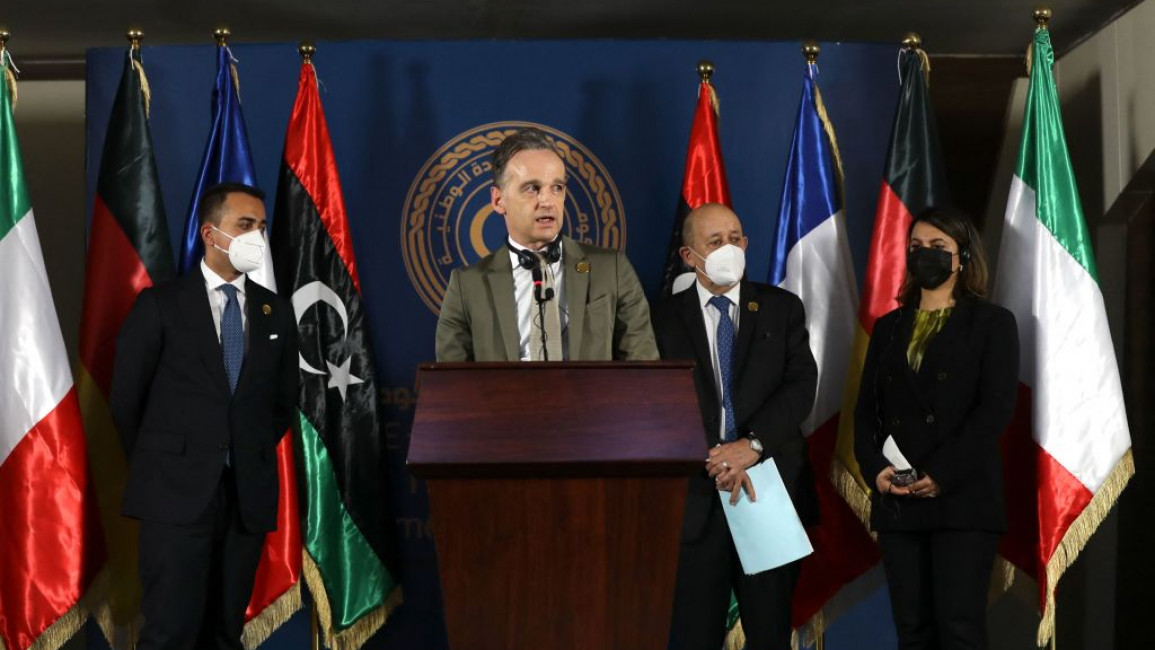Germany to host new round of Libya peace talks on June 23
Germany will host a new set of Libyan peace talks on June 23 in Berlin, with Libya's transitional government due to attend, the foreign ministry said in a statement Tuesday.
"The next steps needed for a sustainable stabilisation of the country will be discussed" at the conference, said the ministry.
Talks will mainly focus on preparations for national elections planned for December 24 as well as the withdrawal of foreign troops and mercenaries from Libya.
They will also look at the creation of unified security forces for the North African country.
"The conference is an expression of the continued international support for the stabilisation of Libya," said a German ministry spokeswoman.
"The international community remains ready to continue its close and constructive support of the UN-led peace process in Libya."
Libya was thrown into a decade of violence following the 2011 overthrow of dictator Muammar Gaddafi.
Berlin hosted the first round of the UN-sponsored talks on January 19, 2020, gathering leaders of warring Libyan sides as well as the presidents of Russia, Turkey, France and Egypt to bid for peace in the conflict-torn country.
At that conference, world leaders committed to ending all foreign meddling in the conflict and to uphold a weapons embargo.
Since then, a formal truce last October has led to the creation of an interim government tasked with unifying Libya's divided institutions, launching reconstruction efforts and preparing for December polls.
But the UN envoy for Libya, Jan Kubis, last month assessed that progress on issues such as the withdrawal of foreign mercenaries and reopening of the road connecting the country's east and west had stalled.
According to the UN, more than 20,000 foreign mercenaries and military personnel are still in Libya. They include Turkish, Russian, Sudanese and Chadian mercenaries.
Unlike the Russian mercenaries who supported the authorities in the east of the country, Turkey says its troops sent to Tripoli were sent under a bilateral agreement with the government, implying that they are not affected by a request for foreign troops to leave.



